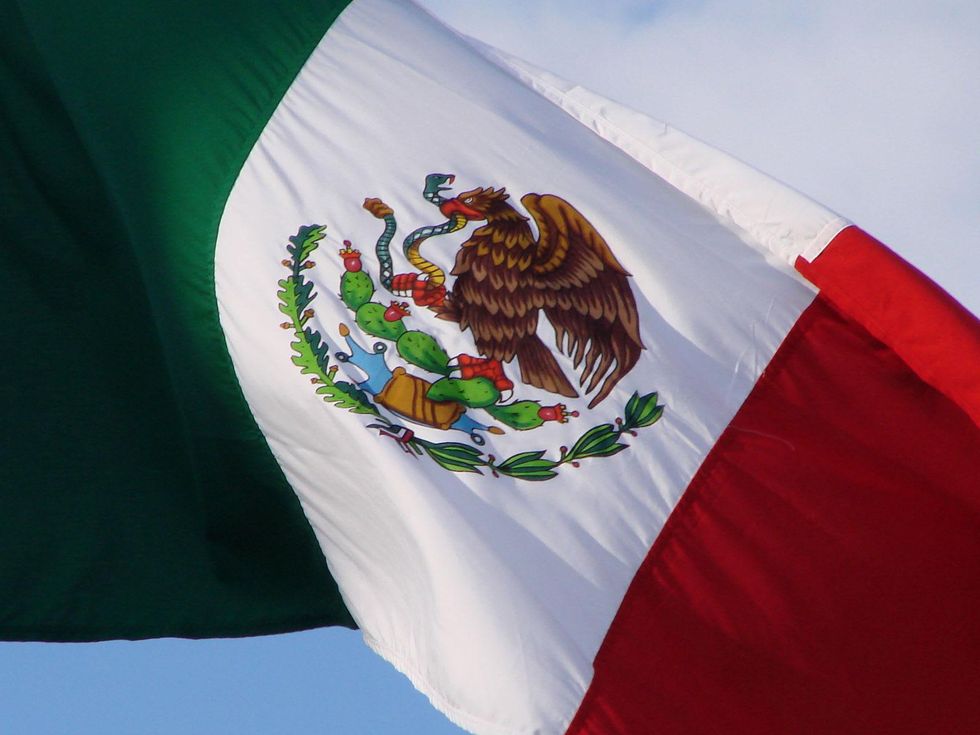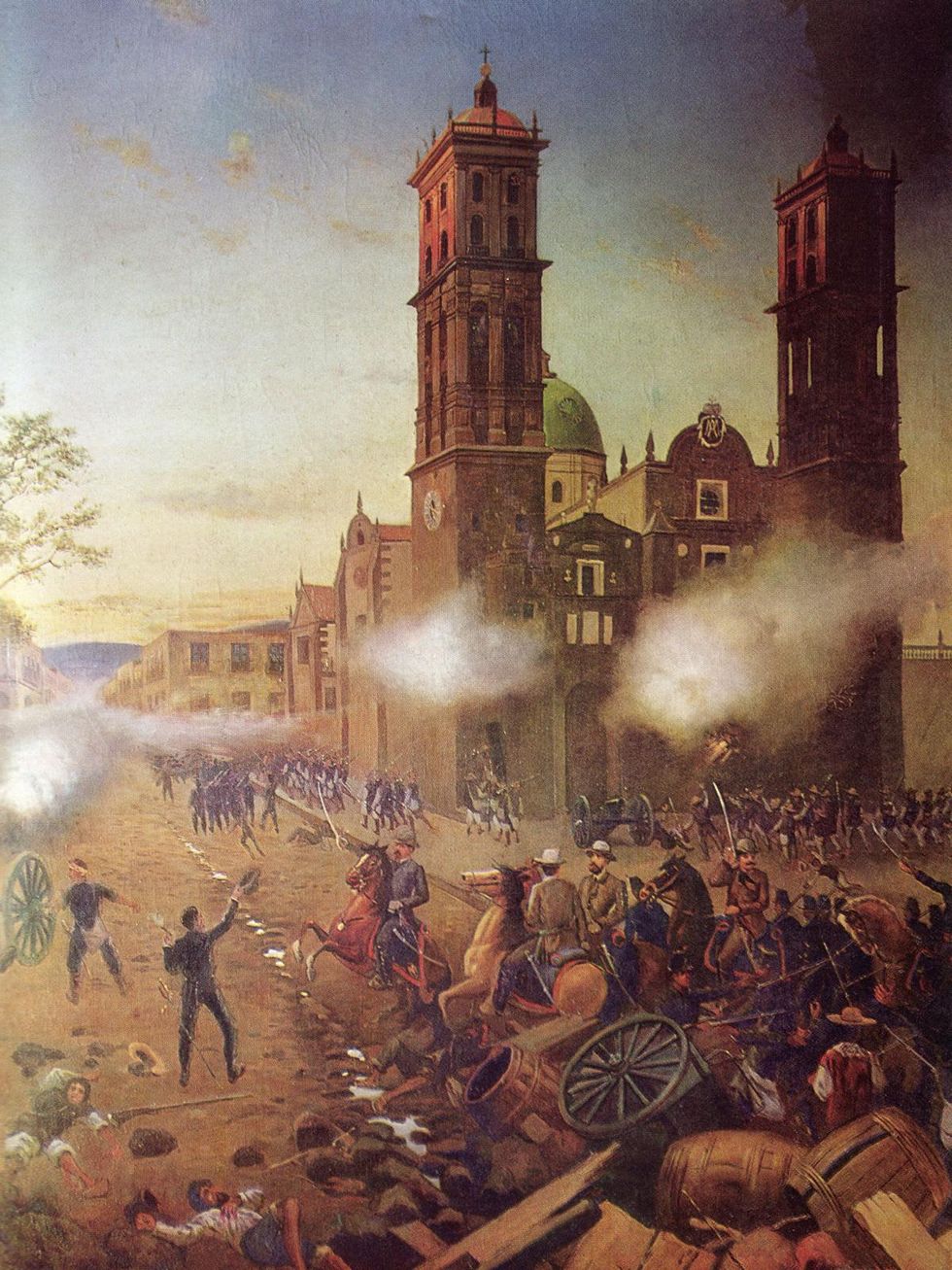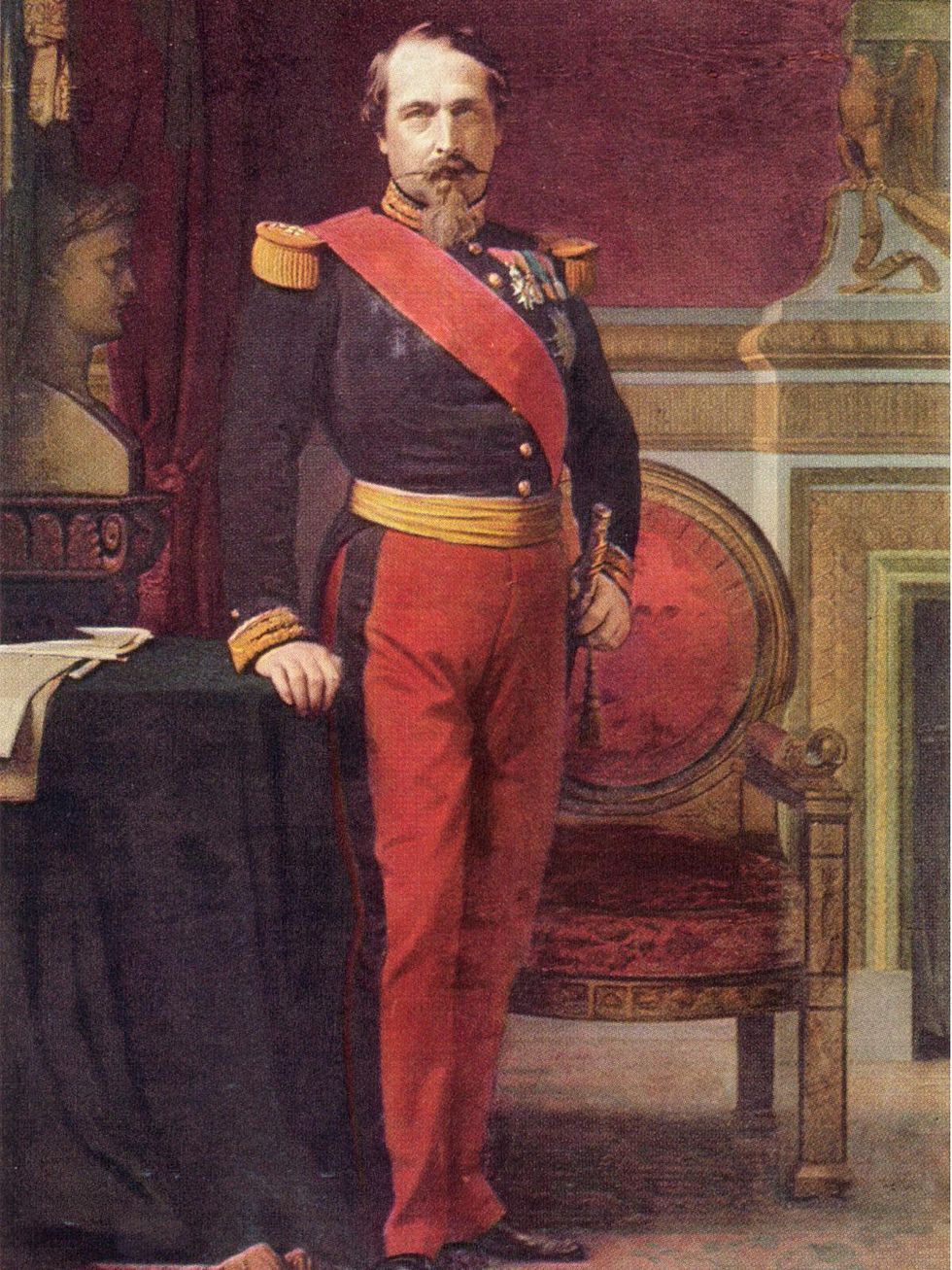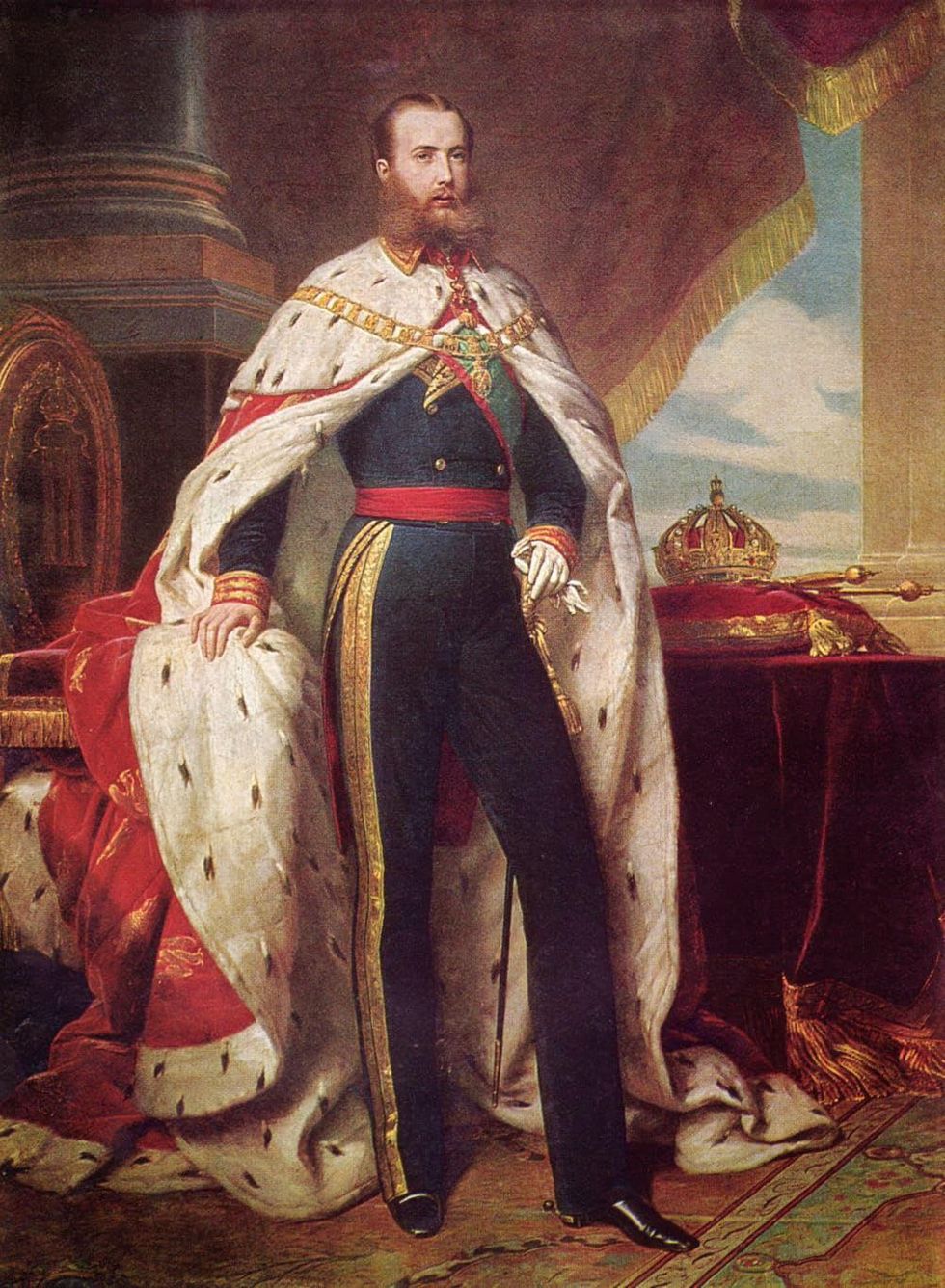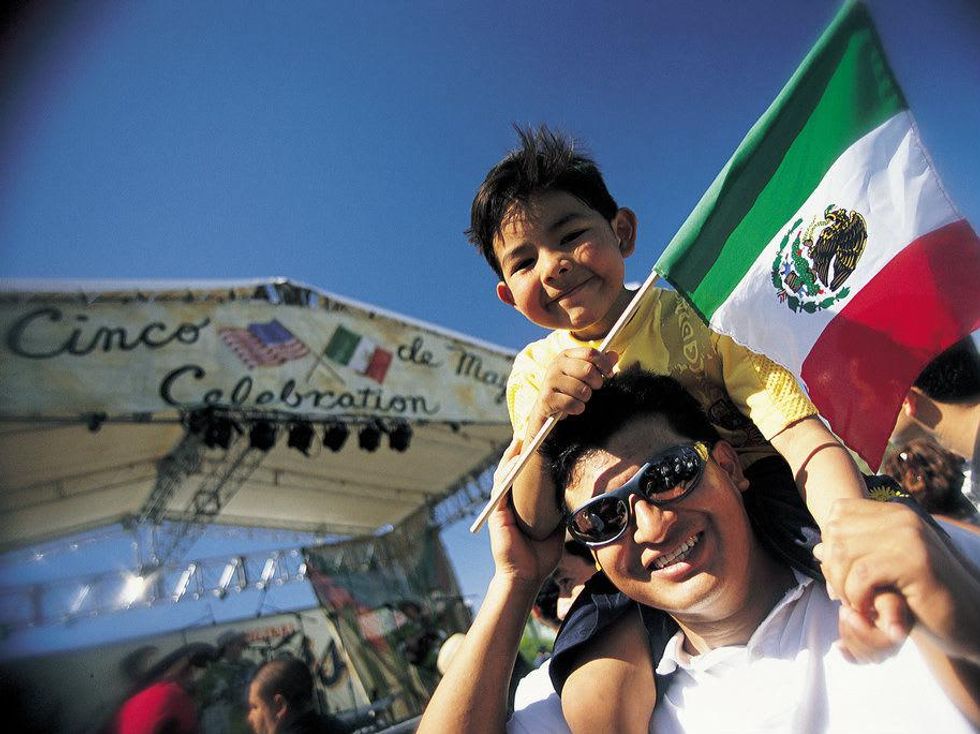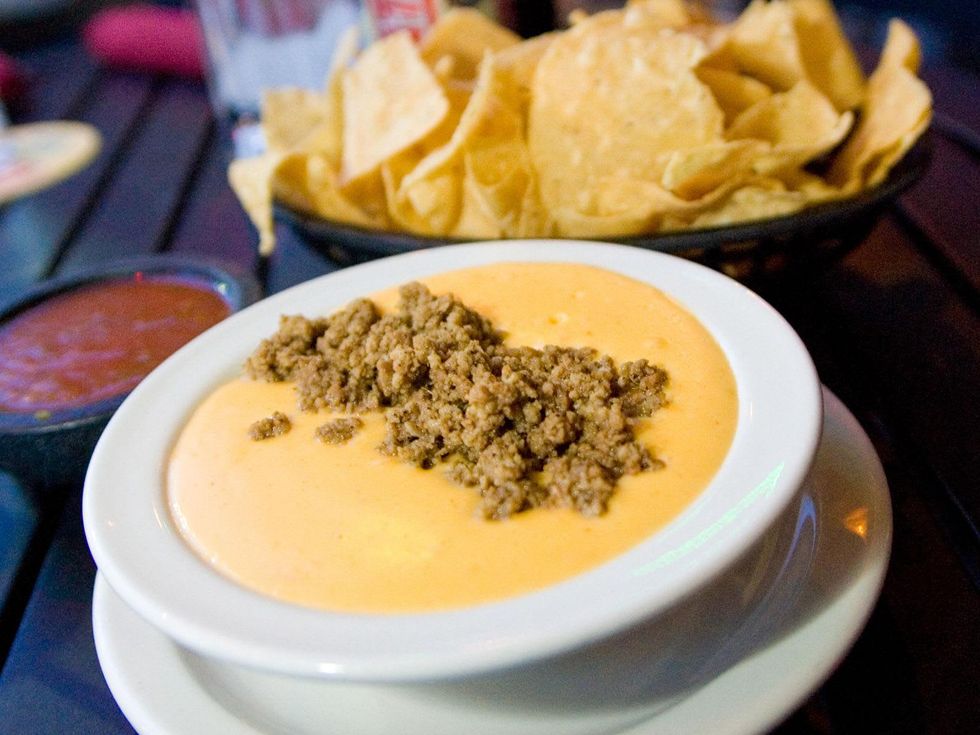It's Never Too Early To Celebrate
A holiday for the underdog: Explore the secret history of Cinco de Mayo
Americans love holidays, and we have to admire our own ability for turning a day of sacred or patriotic observance into a good excuse to shop or party or both. Cinco de Mayo is perhaps the latest holiday we’ve co-opted, and then promptly forgotten the real significance and spirit of this important anniversary in Mexican history. Before we prepare for this year’s celebrations, let’s put down the tequila and take a moment to meditate on Cinco de Mayo’s profound, and life-affirming simple message to the world: Screw you, France.
Even as we’ve become the global big guy, we love stories of the little guy holding back the coming hordes, while shouting: "Here We Stand Our Ground," in whatever language or on whatever ground that may be.
Confused? Well, for all of you who slept through the entire 19th century section of 10th grade world history class, we’ve foreseen your questions and bring you a Q&A to help you discover the true meaning of Cinco de Mayo.
So Cinco de Mayo is not Mexico’s Independence Day nor the anniversary of the invention of the margarita?
Correct, the holiday commemorates the Mexican forces triumph over the larger French army in the Battle of Puebla on May 5, 1862.
Wait, why was the French army in Mexico?
The acknowledged reason was that Britain, Spain and France had lent Mexico money which the new president, Benito Juarez, refused to immediately continue paying interest on. He changed his mind once their combined ships arrived in Veracruz. While the British and Spanish took their money and huffed on out of there, the French army arrived to party in 1862.
The psychological reason might be Emperor Napoleon III’s "My-short-uncle-Napoleon-managed-to-conquer-more-of-Europe-than-me" Complex.
Early in the War of French Intervention in Mexico — probably the most boring name for a war ever — Mexican forces, under General Ignacio Zaragoza managed to hold their own and even beat back the superior-in-number French army near Puebla. (Zaragoza was born in what is today the city of Goliad, Texas, so we’ll insist he’s sort of Texan.)
Well, that sounds like a good reason to celebrate. Can I order my margarita now?
No, we haven’t gotten to the best parts. Mexico won this battle but soon lost the war as more and more French troops arrived. Emperor Napoleon III decided it was a good time for Mexico to convert to French and conspired to put one of his some-number-once removed cousins by marriage, Archduke Ferdinand Maximilian Joseph of Austria, in power.
How did Napoleon III convince the younger brother of the Austrian Emperor to declare himself Emperor of Mexico?
We’re not historians, but we imagine the conversation went something like this:
Napoleon 3: Hey Ferdie, Look over there, across the Atlantic. I think that Mexico country is totally checking you out.
Ferdie Max: Mexico? I barely know Mexico.
Napoleon 3: No, really. The word is Mexico can’t stop talking about that time you reformed the Austrian Navy and how much hotter you are than your older brother.
Ferdie Max: I don’t know. Mexico seems a little young for me.
Napoleon 3: And that’s why Mexico could use the “hand” of an experienced leader like you, bro. If Mexico were into me, I’d totally hit that. And when I say “hit that” I mean, march on Mexico City with French troops and the Mexican monarchists behind you and declare yourself Emperor. God man, it’s 1863 already. Do you really want to be the one loser out of all European royalty who hasn’t declared himself emperor of something yet?
Ferdinand Maximilian Joseph sits down the Archduke of Austria but gets up Emperor Maximilian I of Mexico.
And scene.
Could you possibly add more soap opera or conspiracy theory elements to this saga?
Certainly. Though legitimate historians deny it, gossips on the Internt and apparently in European courts at the time, whispered that Maximilian might not have been the son of Archduke Franz Karl of Austria, but the love child of an affair between his mother, Princess Sophie of Bavaria, and Napoleon II (the son of the only Napoleon you actually remember from history class), and this is why Napoleon III picked Maximilian.
Also Maximilian’s wife Marie Charlotte Amélie Augustine Victoire Clémentine Léopoldine, princess of Belgium, who wins the longest name award of our cast of characters, went insane after Maximilian lost his Mexican throne and was executed. She spent the end of her life as one of the richest woman in Europe wandering around a Belgian castle.
Will Selma Hayek and Shonda Rhimes be partnering to adapt Cinco de Mayo, The Secret Story for television?
One can only hope.
So how does the U.S. fit into all of this?
You really did sleep through all of 10th grade, didn’t you? The Monroe Doctrine. If the question involves the U.S and any of the Americas just write “Monroe Doctrine” and the teacher gives partial credit.
For full credit, know that while Maximilian ruled in Mexico City, Juárez’s armies were gaining victories throughout the country, and France was getting tired of footing the growing bill. Right about the time the U.S Civil War was ending. Throughout all the unpleasantness Secretary of State Seward was known to mutter “Hey, not cool, France. Haven’t you heard of our Monroe Doctrine?” and we began showing more overt support for Juárez.
O.K, but why does all this mean I’m going to need to call in “sick” on May 6?
Cinco de Mayo has recently become much more of a U.S. celebration than a Mexican one. In the 1960s, the day began its ascension as a regional holiday in the U.S Southwest as a way to promote Mexican-American heritage and pride. It only became more commercialized in the '80s.
And while a holiday seemingly built around margaritas certainly has its allure, I think Cinco de Mayo took hold in our imaginations because it’s a great underdog story, something Americans, perhaps both continents of us, have never been able to resist. Even as we’ve become the global big guy, we love stories of the little guy holding back the coming hordes, while shouting: "Here We Stand Our Ground," in whatever language or on whatever ground that may be.
Throughout the month of April leading up to the big day in May, CultureMap will get you set for making Cinco de Mayo 2014 truly memorable. We’ll survey the best margaritas in town, review the best movies to get you in the 5/5 mood, and let you in on the best parties. Through it all, we hope you’ll hold in your hearts the true spirit of the Battle of Puebla as you say “Screw you, France” while slamming down that shot of tequila.
Let’s put down the tequila and take a moment to meditate on Cinco de Mayo’s profound and life-affirming simple message to the world: Screw you, France.
